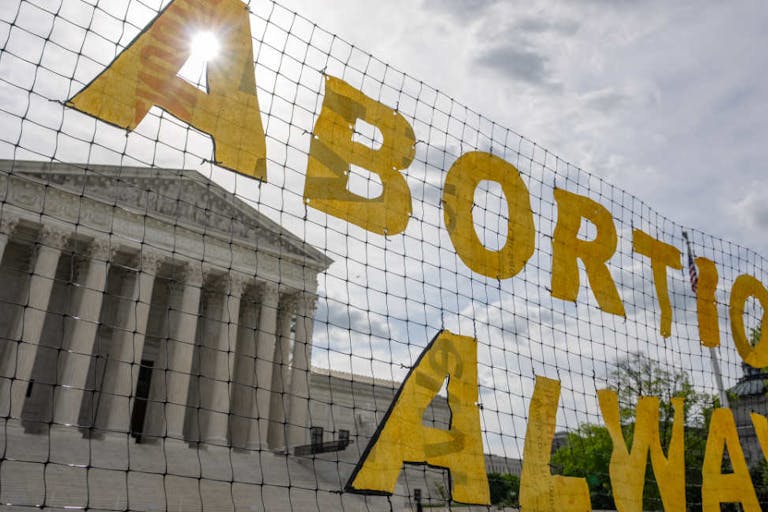
A growing number of Americans call themselves ‘pro-choice’ – but what’s really behind it?
Nancy Flanders
·
Slate writer furious she can’t outlaw crisis pregnancy centers
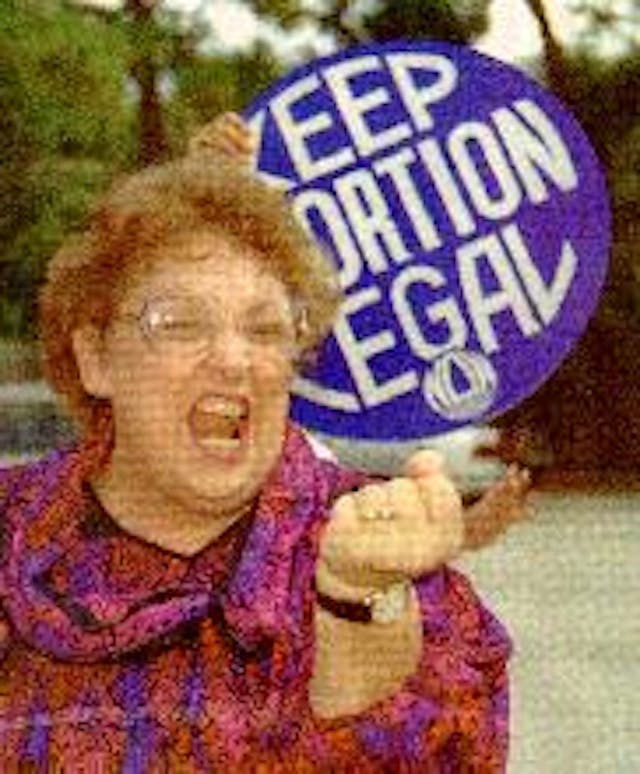
In yet another sign that pro-aborts just cannot stand having to compete for pregnant women’s time (and, to them, money), Slate blogger Meaghan Winter asks (hat tip to Connor Williams at NewsBusters), “Why are crisis pregnancy centers not illegal?”
To sane readers, “because it’s a free country” might be a sufficient answer; “because we value charity in this country” might be another. But Ms. Winter is having none of that nonsense:
[CPCs] often use misleading advertisements—sometimes even posing as abortion providers—and regularly dispense inaccurate information in order to dissuade women from accessing contraception and abortion, as NARAL Pro-Choice America has documented. A 2006 congressional report found that federally funded CPCs informed patients seeking abortions that the procedure “could increase the risk of breast cancer, result in sterility, and lead to suicide and ‘post-abortion stress disorder.’”
That NARAL report just happens to be the one I dissected for Live Action back in March. That debunking also analyzes much of the same material as the second report she cites, which was the brainchild of former Congressman Henry Waxman.
Waxman is a pro-abortion radical who was notorious for churning out bogus investigations at the rate some go through potato chips—as many as 2,000 over just one 8-year-span of his four decades in Congress. (Also noteworthy: the Heritage Foundation’s Melissa Pardue found a previous Waxman report attacking abstinence education to be “riddled with errors and inaccuracies.”)
But never mind that Winter’s stated rationale for CPCs’ illegitimacy is wrong; her rationale is basically taken as a given throughout the rest of the piece, which is concerned with how to crack down on this societal menace. Sadly, she’s pessimistic.
“In every state in the U.S., consumer protection laws prohibit businesses from engaging in false advertising and other misleading practices,” but Winter thinks the consumer fraud approach is a dead end because CPCs’ “victims” are too poor and lack the connections to file fraud claims. Aside from the absurd implication that Planned Parenthood, NARAL, the National Organization for Women, or any number of other pro-abortion groups couldn’t back such suits if they really wanted to, the bigger issue is that what she describes— neutral-sounding names and not discussing religion on websites —isn’t actually false advertising (again, see here).
Next she explores the church-state angle:
The First Amendment means we’re free to be motivated by all kinds of personal beliefs. But it also puts limits on a state’s ability to subsidize religion and religious activities. If CPCs are using state funds to proselytize, there could be a case to be made that they are violating the constitutional separation of church and state. The line between religious and government activities is often blurry when it comes to CPCs, however, and that haziness makes litigation difficult.
Nonsense. Aiding pregnant women is widely recognized as a secular purpose. Someone’s religious motivation for doing so no more makes their work proselytizing than does their work at a religious homeless shelter, soup kitchen, or disaster relief effort.
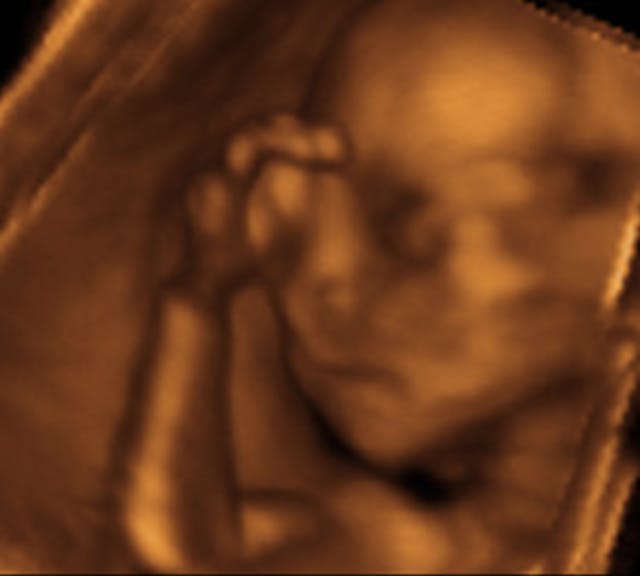
Lastly, Winter ponders busting CPCs for “unlicensed practice of medicine.” But again, as we explored in March: Project Ultrasound only provides ultrasound machines to CPCs that do have the proper medical credentials, NARAL has admitted they’re against even licensed CPCs being able to call themselves medical professionals, and after supposedly grilling Maryland CPCs on this very point, NARAL suspiciously opted not to reveal the answers they got.
So, much to pro-aborts’ dismay, crisis pregnancy centers remain free to terrorize women with pregnancy tests, ultrasounds, baby supplies, parenting classes, post-abortion counseling, and information on adoption, medical care, and financial aid.
The horror.
Live Action News is pro-life news and commentary from a pro-life perspective.
Contact editor@liveaction.org for questions, corrections, or if you are seeking permission to reprint any Live Action News content.
Guest Articles: To submit a guest article to Live Action News, email editor@liveaction.org with an attached Word document of 800-1000 words. Please also attach any photos relevant to your submission if applicable. If your submission is accepted for publication, you will be notified within three weeks. Guest articles are not compensated (see our Open License Agreement). Thank you for your interest in Live Action News!

Nancy Flanders
·
Guest Column
Emily Berning
·
Opinion
Nancy Flanders
·
Opinion
Mark Wiltz
·
Opinion
Mark Wiltz
·
Pop Culture
Madison Evans
·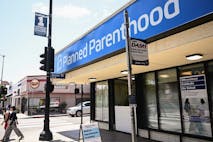
Guest Column
Calvin Freiburger
·
Abortion Pill Reversal
Calvin Freiburger
·
Guest Column
Calvin Freiburger
·
Abortion Pill Reversal
Calvin Freiburger
·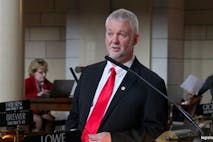
Activism
Calvin Freiburger
·